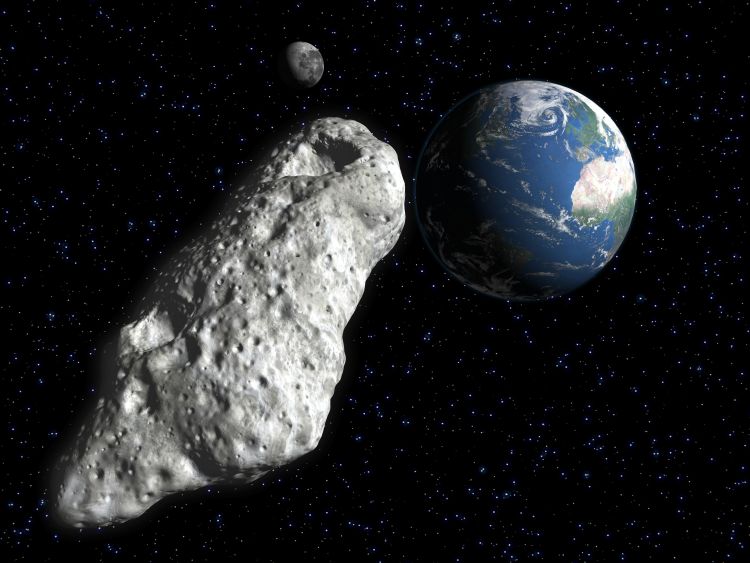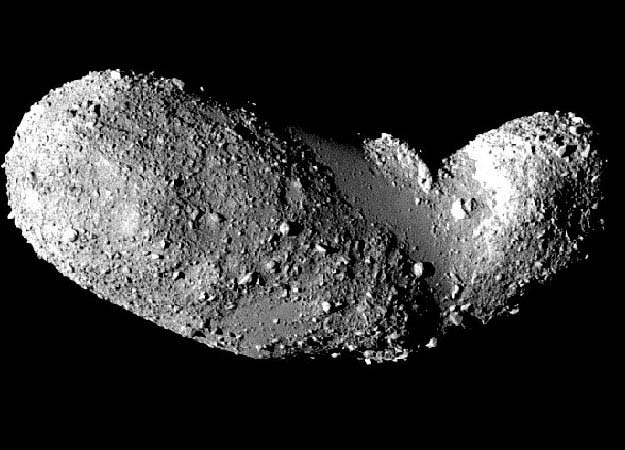NASA Asteroid Search Program Needs More Structure, Audit Finds

WASHINGTON — A NASA program that supports the search for potentially hazardous asteroids as well as targets for the agency’s Asteroid Redirect Mission needs to be better structured with more staff, an internal audit concluded.
The report, released Sept. 15 by NASA's Office of Inspector General (OIG), found that the Near Earth Object (NEO) Program Office lacked the plans and contracting oversight typically used on agency programs, leaving many decisions on awarding grants in the hands of the program executive even as the program's budget grew tenfold over the last five years.
"We believe the Program would be more efficient, effective, and transparent were it organized and managed in accordance with standard NASA research program requirements," the report concluded. [See images of potentially dangerous asteroids]
The report found that the program did not have an overall plan for allocating resources to support the goals of the program, which include finding 90 percent of all NEOs at least 140 meters in diameter by 2020. The program also has no dedicated staff beyond the current program executive, Lindley Johnson.
That lack of staff means that Johnson "is responsible for or has significant input" in all elements of the process of granting awards, which OIG said goes against control standards established by the Government Accountability Office. In addition, the agency "did not adequately oversee, monitor, or evaluate the progress of the work" performed under awards made by the office.
While the audit did not conclude that any awards made by the office were improper, it did raise questions about the effectiveness of some of them, including a $6.5 million, five-year award in 2013 to the Massachusetts Institute of Technology's Lincoln Laboratory for its LINEAR asteroid search program. LINEAR received the funding "in spite of a steep decline in the Program's ability to provide detection and follow-up observations," the report noted, and no guarantees it will have long-term access to a new telescope the U.S. Defense Advanced Research Projects Agency has developed for space surveillance work.
The OIG concluded that the lack of staff and contracting issues were linked. "We believe the Program needs more personnel to ensure proper oversight of associated research and procurement awards," the report stated. It added that Johnson agreed, suggesting that the program needed four to six full-time employees to adequately carry out its work.
Get the Space.com Newsletter
Breaking space news, the latest updates on rocket launches, skywatching events and more!

OIG made several recommendations about improving the NEO program, including creating a formal program plan, studying staffing needs, and improving internal controls for contracting. The report also recommended that the office develop plans for partnerships with other federal agencies and international organizations to better coordinate asteroid searches.
NASA, in a Sept. 11 letter included in the report, accepted all the recommendations, while saying that awards already made by the program are consistent with agency regulations. NASA "firmly believes that the NEO Observations projects that are currently funded already follow NASA's standard procedures for awarding research grants and contracts," John Grunsfeld, NASA associate administrator for science, stated in the letter.
The OIG review comes as the NEO Program Office's budget has grown by about a factor of ten over the last five years, from approximately $4 million in 2009 to $40 million in 2014. The office’s budget doubled from 2013 to 2014 as part of NASA's Asteroid Initiative, which includes efforts to search for small NEOs that could be suitable targets for NASA's Asteroid Redirect Mission .
Follow Jeff on Twitter: @jeff_foust. This story was provided by SpaceNews, dedicated to covering all aspects of the space industry.
Join our Space Forums to keep talking space on the latest missions, night sky and more! And if you have a news tip, correction or comment, let us know at: community@space.com.

Jeff Foust is a Senior Staff Writer at SpaceNews, a space industry news magazine and website, where he writes about space policy, commercial spaceflight and other aerospace industry topics. Jeff has a Ph.D. in planetary sciences from the Massachusetts Institute of Technology and earned a bachelor's degree in geophysics and planetary science from the California Institute of Technology. You can see Jeff's latest projects by following him on Twitter.










